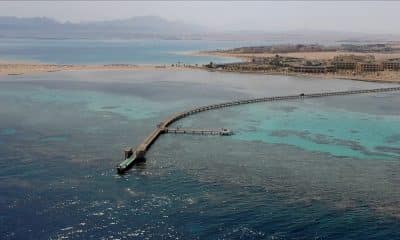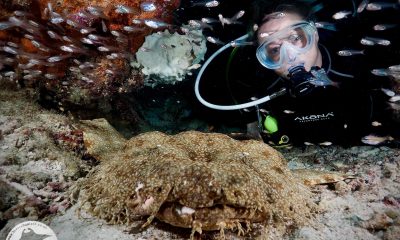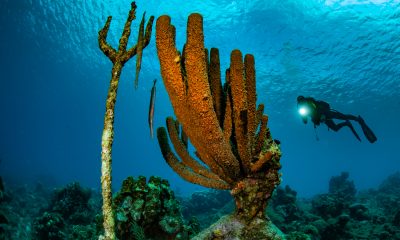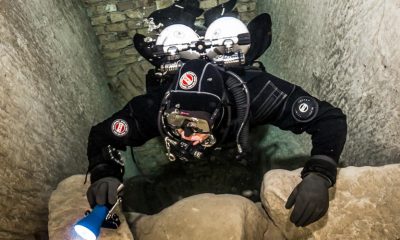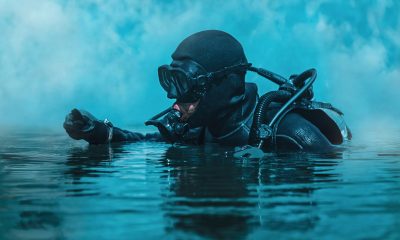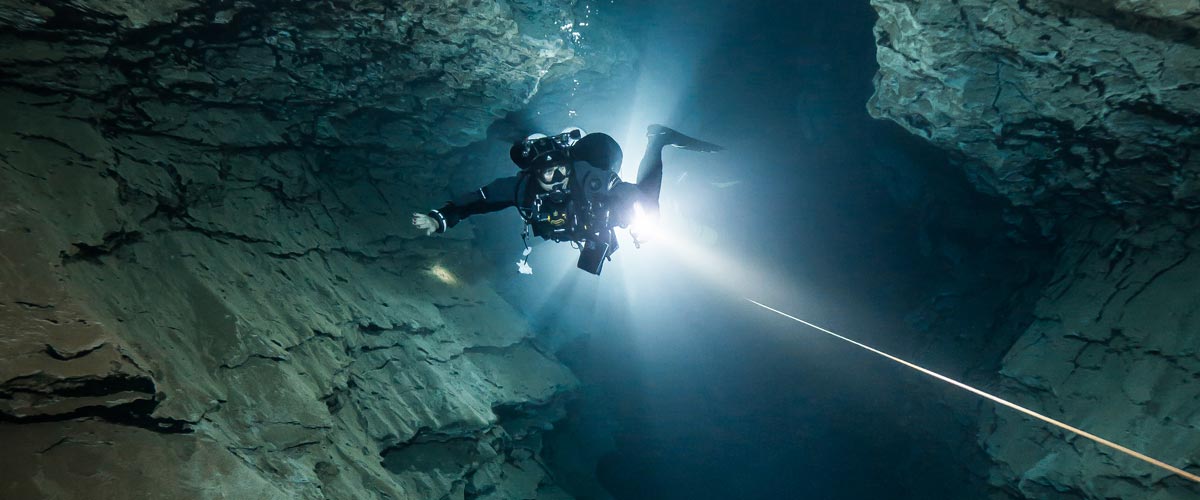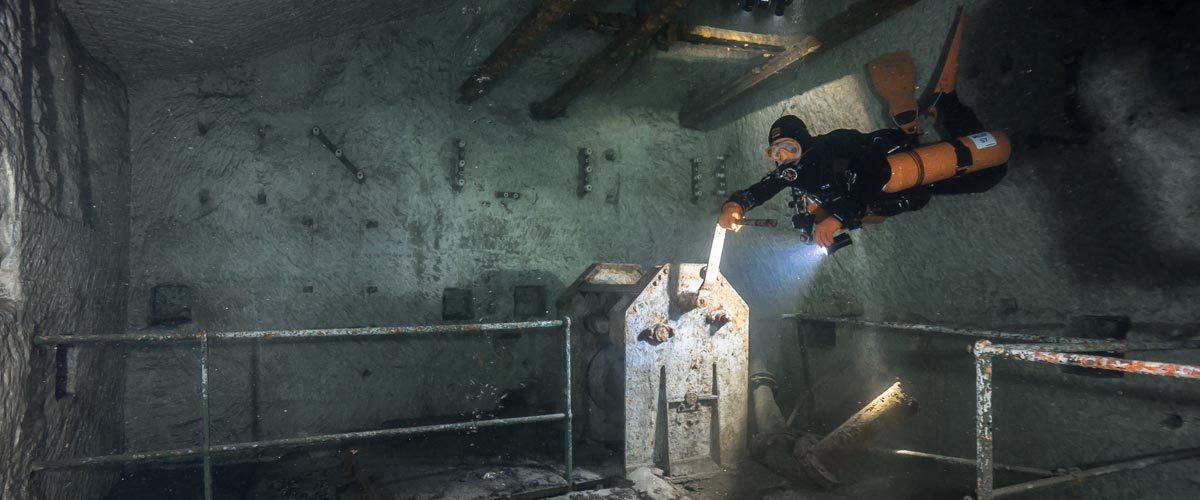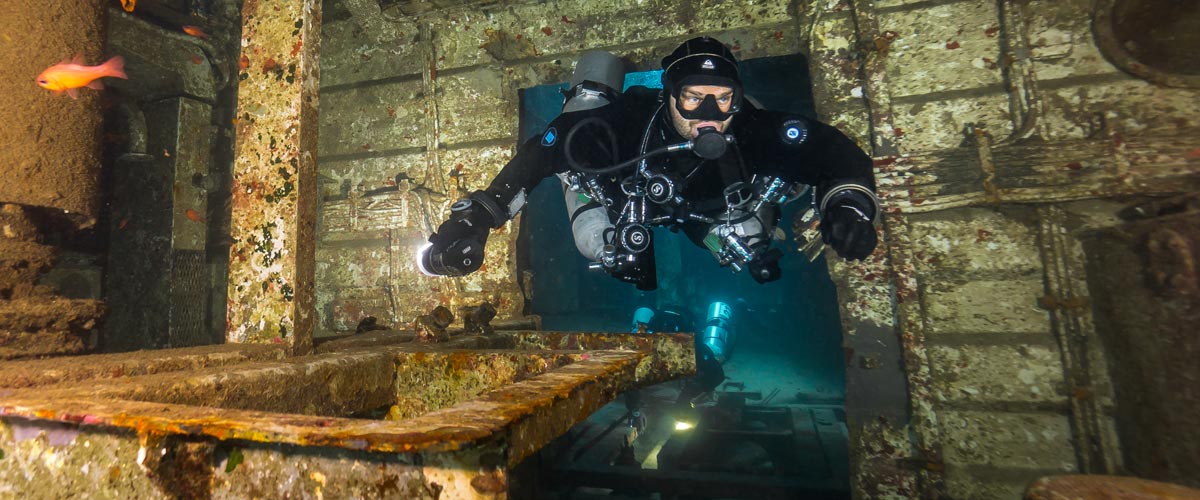Dive Training Blogs
Colin’s last dive – proof of the healing power of Scuba
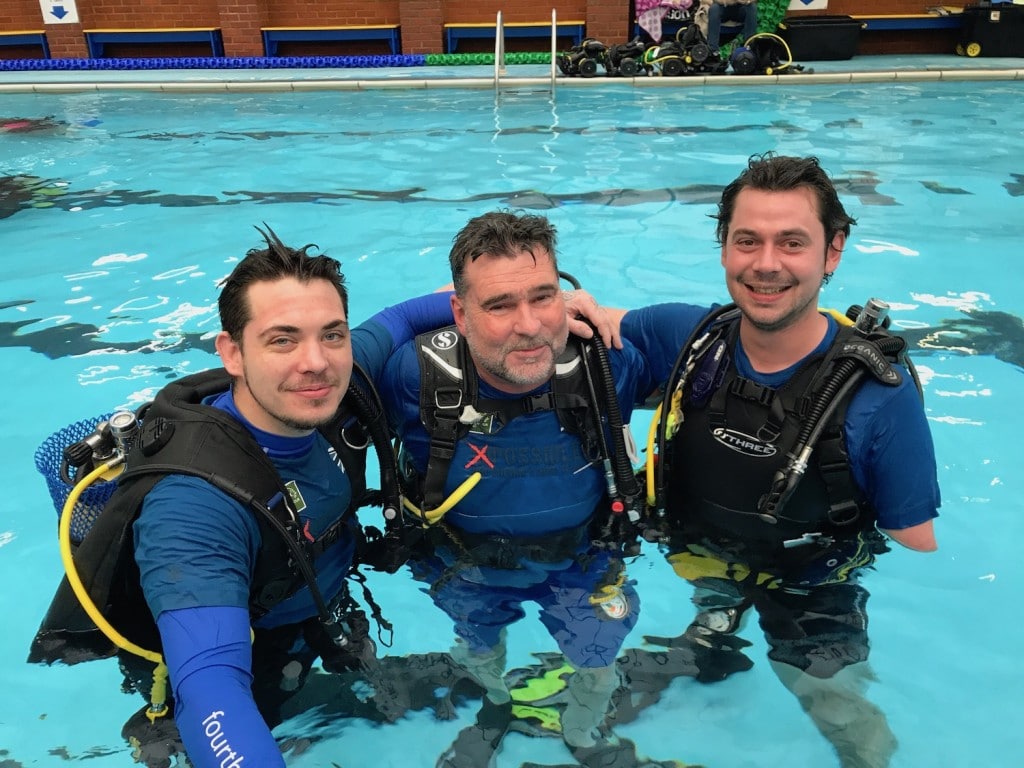
Deptherapy Ambassador, PADI AmbassaDiver and trainee Divemaster Gary Green tells his personal and poetic story of the day he accompanied Colin Clements on his last dive.
The cold metal of the bolt on my shed stung my bare skin as I pulled it from the lock. My knuckles turned white as I pulled the stubborn bolt free. Inside my shed my diving gear was stowed away, protected from the elements. I sorted through the various tools that I would not need: the diving knife, the boots for my dry suit and the Halo dive torch presented to me by John Womack, all placed back in their housing.
My Apeks regulators, fins and BCD were placed inside my travel pack. The temperature must have been below 0 degrees as I filled my car boot in the early morning frost. The remnants of the previous weeks snow had mostly been washed away by the rain; pieces of ice were still present on my driveway. It occurred to me how quickly things could change… A week ago my car was completely snowed in. I started the car to free the wind shield from the condensation smothering the glass and I looked down at my legs. I may have made a mistake wearing the shorts I was going to dive in! The hairs on the bare skin stood up as if saluting the cold air as the engine ticked over, forcing cold air through the vents. I held my body waiting for the cold air to turn warm.
Cars rushed around me; a light rain bashed against the window, wipers swiped left and right giving a second of clear sight until raindrop reinforcements replaced them. Then swipe, swipe again and the droplets were smashed away and forced off the car. The cars in front whip up dirty water from the road, trailing their movement and creating a slipstream of mist behind them.
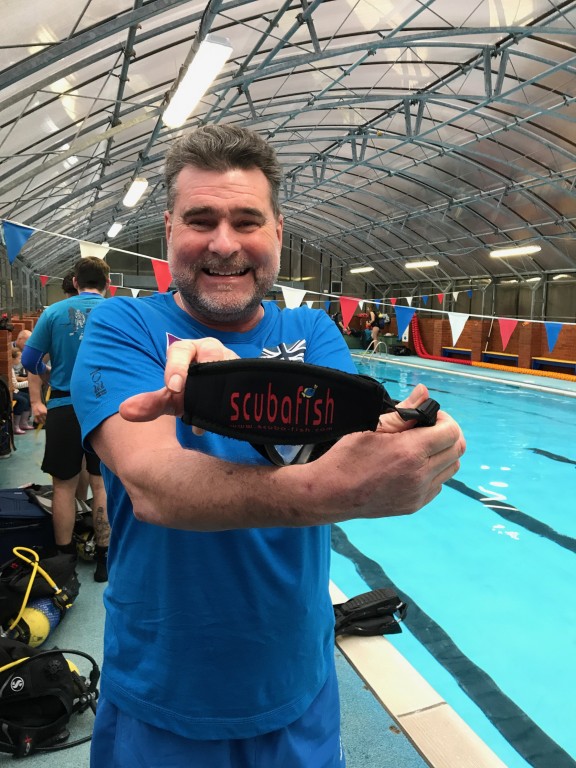 I was in no rush, I wasn’t going to be involved in a car accident. What would be the point? The man I was on my way to meet knows just how quickly things can change. I was not going to waste whatever life I have been granted by rushing on a rain-filled road. The man, Colin Clements, has brain cancer. Not long ago, he was healthy and he spent around 600 hours underwater diving, clearing the Thailand Sea from plastics and fishing wire. Then, just as quickly as the snow had disappeared, so too did his health.
I was in no rush, I wasn’t going to be involved in a car accident. What would be the point? The man I was on my way to meet knows just how quickly things can change. I was not going to waste whatever life I have been granted by rushing on a rain-filled road. The man, Colin Clements, has brain cancer. Not long ago, he was healthy and he spent around 600 hours underwater diving, clearing the Thailand Sea from plastics and fishing wire. Then, just as quickly as the snow had disappeared, so too did his health.
Just this information and realisation forced me to see my own mortality, as my car hit a patch of water, snatching the traction from my wheels. I realised it is not me that is in control. Nothing is a given, life is fragile. So as I watched cars speed past me, I couldn’t help question their decision. It would only take a second for everything to change. I slowed down and decided that anything that was in my control, I would take. I was not going to crash on the motorway for being ignorant; Colin’s story had taught me that my mission that day was more important.
Colin Clements’ brain cancer means that he will soon not be a part of this world. In the face of his own mortality, he sought not a selfish idea or one of self-loathing. Instead, he saw a selfless opportunity, to pass on his gift to those less fortunate.
Deptherapy is a charity that seeks to rehabilitate mentally and physically injured veterans through scuba diving. Colin decided that, in the face of his death, in face of the cursed word that is cancer, not to cower in self-pity but instead to donate his scuba diving gear to the charity. He wanted to do this so that in his death, his scuba diving spirit would live on inside a soldier that needed therapy. Colin had one, final wish – that he could experience the magic of scuba diving one more time. He wanted to do this with a wounded soldier, kindred spirits that both know what it’s like to live with death lingering over them. Someone that knew that death could not follow them beneath the surface.
I drove through the rain, feeling every slippery patch of the road, the whole time trying to imagine what Colin must be thinking. I could not quite comprehend how he had come to the conclusion of charity in the face of death. I have faced death; I have diced with death for my brothers in arms, as we stood side by side in battle. I understand this brotherhood, that some things are more important than death. The only conclusion I could come to is that Colin must too share this brotherhood. Although Colin and I had never met, I knew his spirit; I knew that he must be a man of great heart.
I pulled up at Eagle House swimming pool in Sandhurst. A car was waiting at the entrance and we were greeted by Colin’s carer, Daphne, who told us that he had only just been told that he was going to be diving with us. Up until that point, Colin thought that he was just coming to meet us. Apparently he was so excited that he needed time to calm down.
Inside the pool house, I put Colin’s kit together. I am a trainee Divemaster and as such, I had the honour and responsibility of leading the dive and taking care of Colin inside the water. Chris Ganley was with me, a fellow Rifleman and Deptherapy Programme Member. Chris served two tours in Afghanistan but when he got home he was involved in a horrific motorcycle accident. He lost his left arm and was basically rebuilt from the waist up.
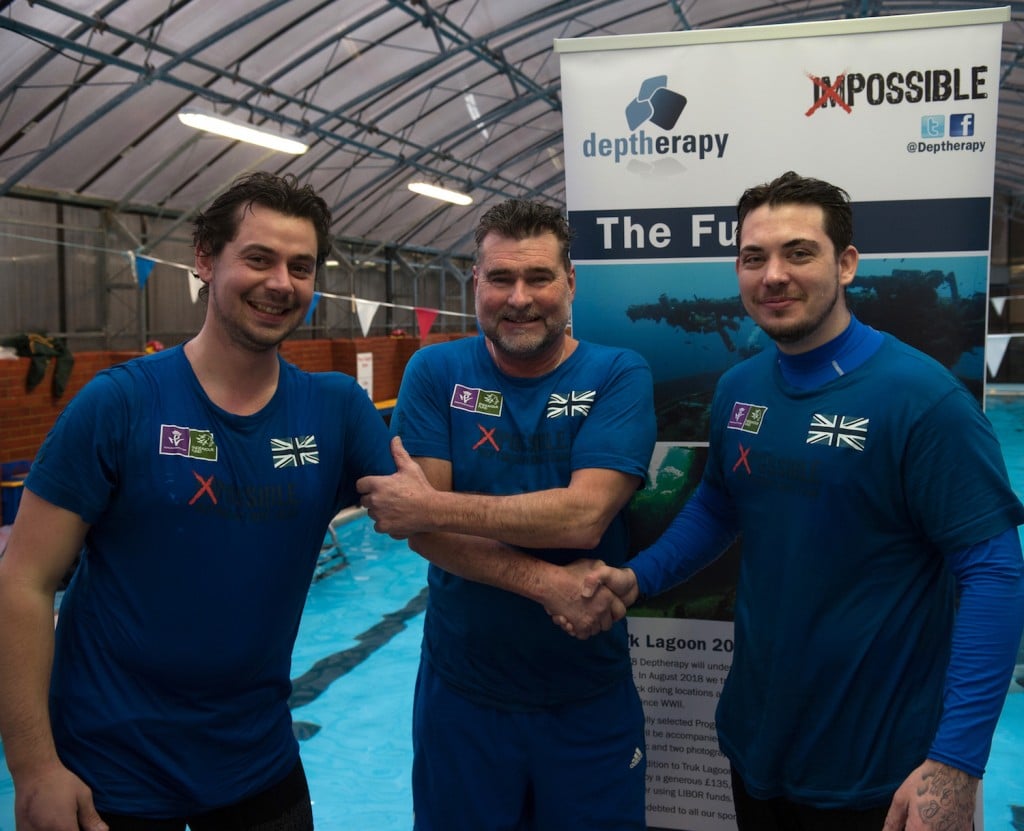
Together we stood in meeting; a veteran with one arm, a veteran blind in one eye with PTSD, and a man who was about to die from brain cancer. Three men from different parts of the country uniting for scuba. Colin spoke beautifully about scuba diving; his words were often forgotten and he struggled to remember certain things but his enthusiasm for the water was unmistakable.
I helped him into the water, I checked his kit and I weighted him for a buoyancy check. I spat in my mask, I looked him in the eyes and they twinkled back at me, his eagerness to feel the water close his head was screaming at me through his smile. As we went under the surface I kept close to Colin. I was worried that because of his condition he might forget to breathe or might panic.
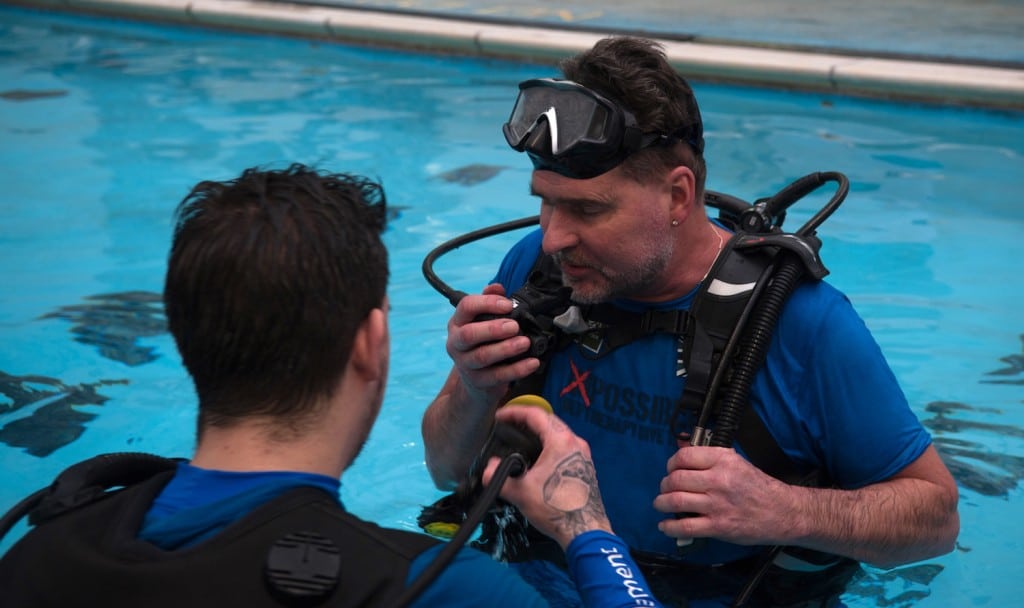
“The complete opposite happened; he was so at home. I believe that if he could live underwater then he would live forever.”
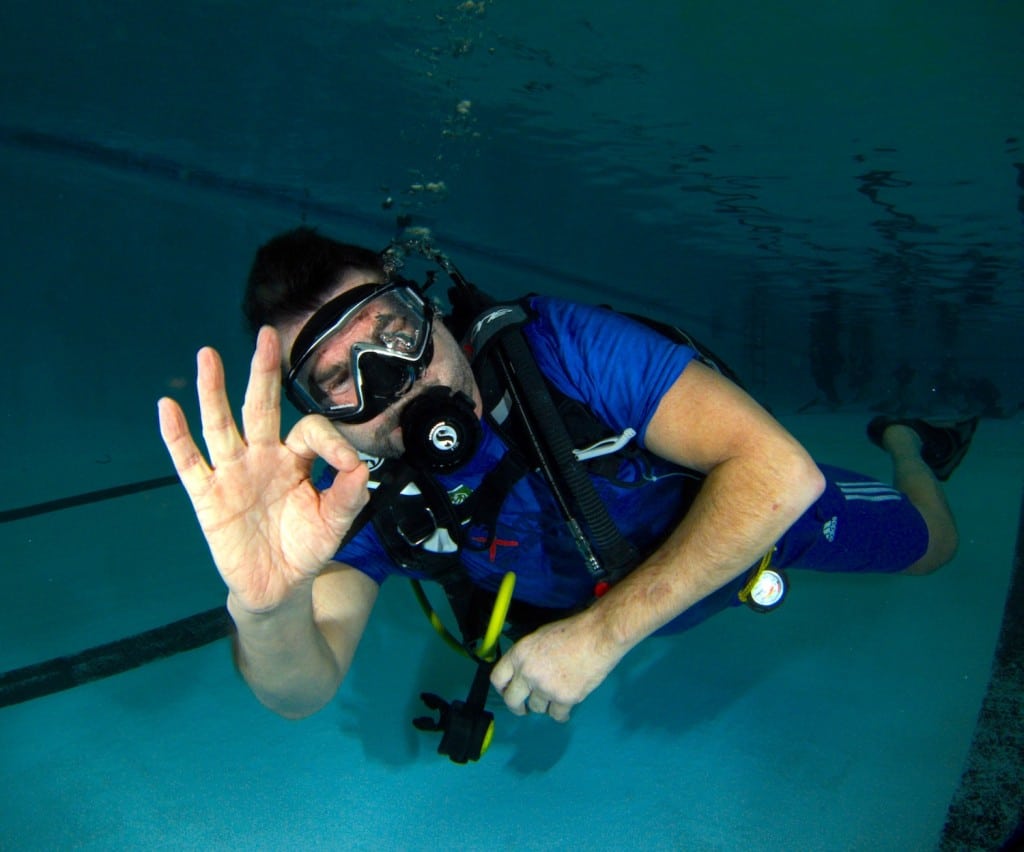
We posed for underwater photos, some with the Deptherapy banner, and Colin was completely coherent and helped hold the banner in place whilst Stuart Green worked his magic with the camera. After about fifteen minutes Colin became tired and we headed to the shallow end and popped out of the water. The smile on Colin’s face was unbelievable, like a new life had sparked inside him, if only that was the case…
I took his kit and I helped him out the water. The dive was cut short but the fifteen minutes was enough and Colin’s wish of one, last dive was completed. Gratitude was showered upon us by his family and by him; I didn’t understand why because it was I who was grateful for his gesture. Chris Ganley and myself had just done what in our eyes was the right thing to do; it was nothing special, just the recognition of someone that shared that brotherhood spirit, someone who knew that some things are more important than death.
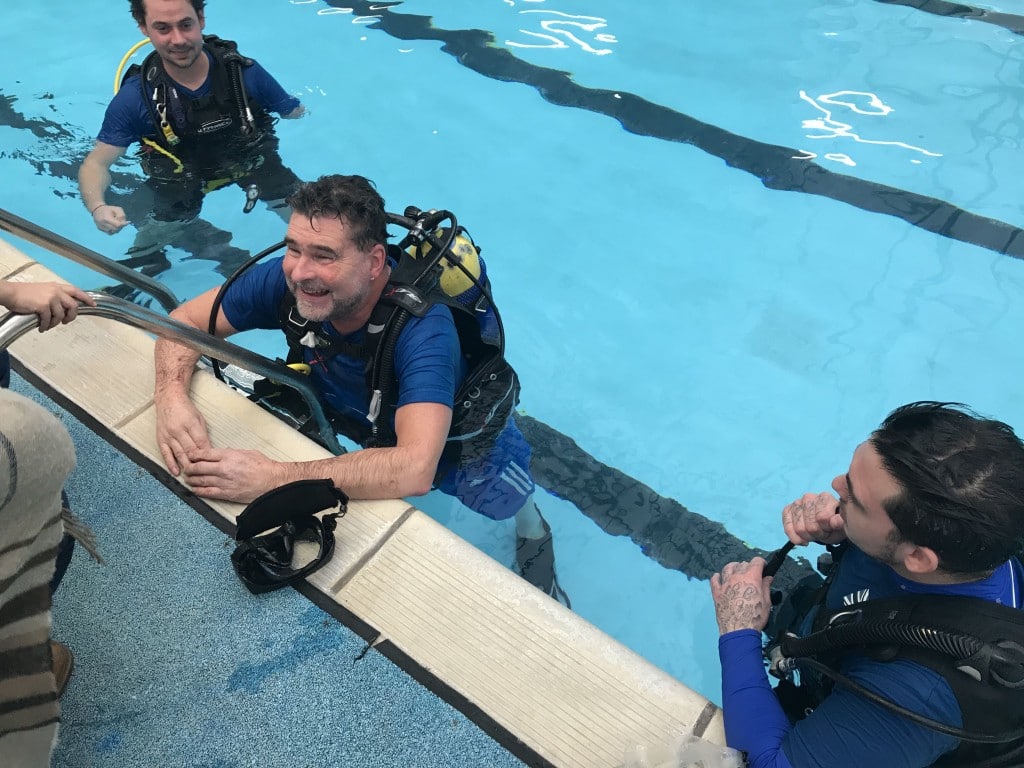
The dive with Colin not only reminded me of how important life was, that things can change as quickly as the weather, but also a life affirmation. I am here now. I am alive. If a man can be so generous in death, then surely a man who is still alive can do so much more?
Colin has touched many people. He has taught me that life is precious and that there are good people in this world. His kit will go on a soldier who is in a dark place; hopefully, that person will come out of the water not only wearing Colin’s dive gear, but also wearing his smile…
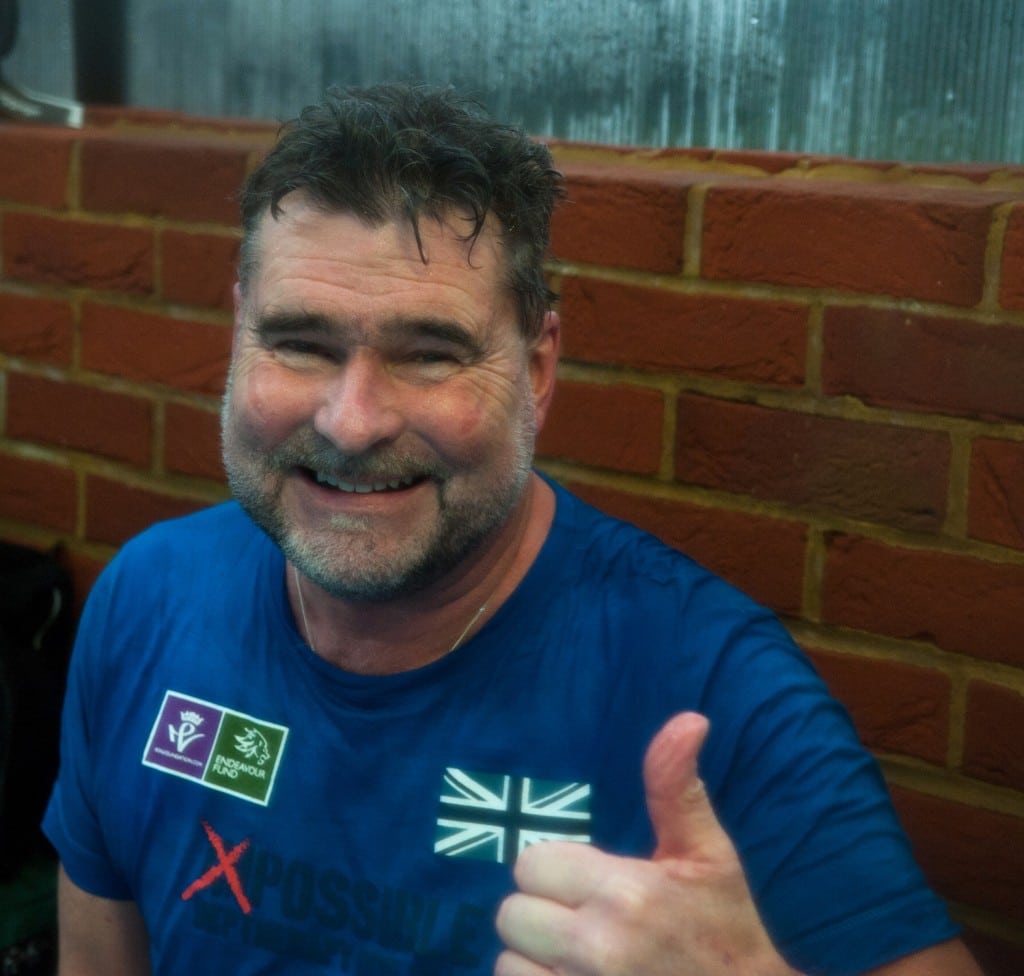
Colin Clements.
Blogs
Intro to Tech: What is it about?
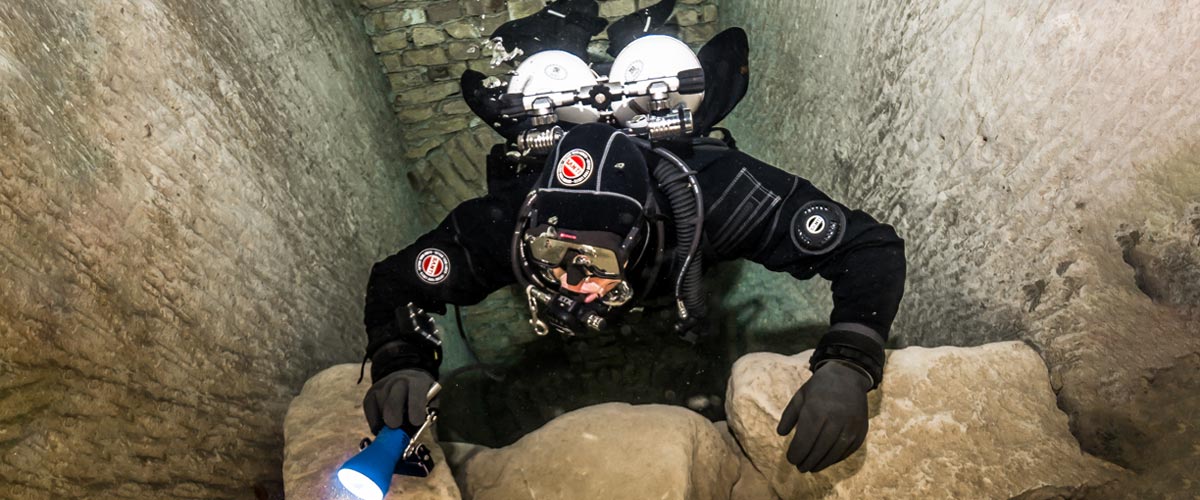
Article by José Pablo Mir
Pictures by Cezary Abramowski
The world of technical diving is exciting. It opens the door to new sites, depths, and bottom times. More importantly, it opens our minds to a new way of planning, facing, and experiencing dives, even those not purely technical.
Becoming a technical diver is a process, and like in other aspects of life, we should find the proper entry point that suits us best based on our knowledge and experience. The Introduction to Technical Diving course from TDI -the world’s largest and most recognized technical diving teaching organization- is the best option for divers who have yet to gain experience in the fundamental aspects of this new practice. The course’s content and its embrace of new techniques and technologies make it possible to acquire a solid foundation to learn and gain experience in this practice properly.
Becoming a technical diver is not something that happens overnight, whether deciding to become one or receiving a certification card stating we are now technical divers. It is a slow process extending farther away than any introductory course. It requires effort and dedication. But it will bring us satisfaction from day one -or two.
It is a matter of mentality
First, we must understand and accept that technical diving, involving greater depths, longer bottom times, exotic gases, virtual or real ceilings, and more, comes with higher levels of risk than the sport diving we have been practicing until now.
Although this discussion usually starts with a warning about risks, as I’ve done in the previous sentence, our practice is not a game of chance.
Technical diving is a rational activity that requires maturity and good judgment, and we will put everything into ensuring that each dive is a successful one -meaning we return from it safe and sound. With this understanding, we will strive to establish a mental attitude more aligned with our practice and its realities.
This new “technical diver” mindset we will develop will lead us to be more cautious in our executions, more analytical in our plans, more rational in our strategies, and more detailed in our procedures.
Experience will keep teaching us to know ourselves better, to keep our anxiety and other emotions under control, and to manage our impulses. Over time, our senses will sharpen, and we will be more attentive to the particulars of the situation we find ourselves in.
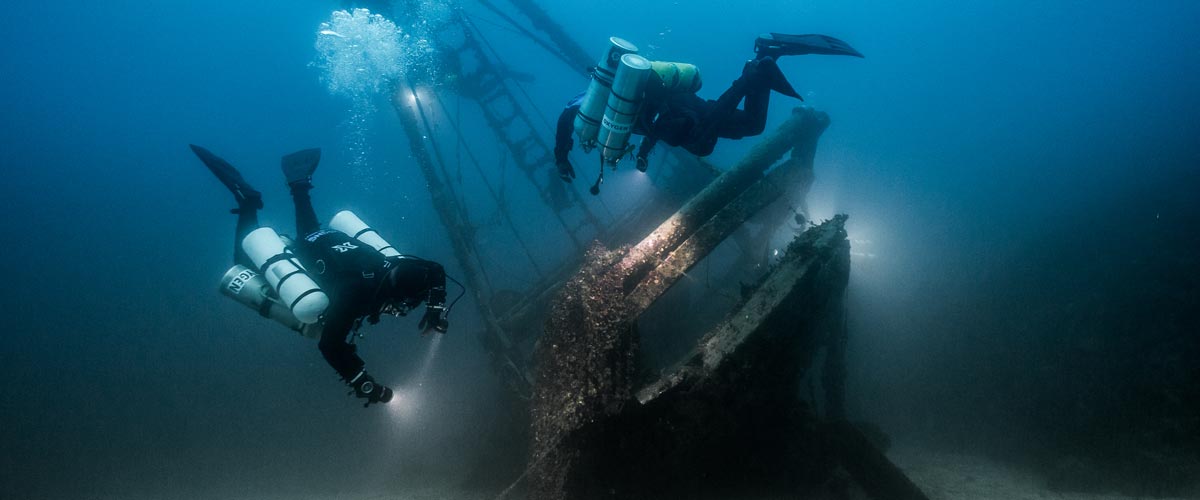
Strategies and procedures
Our strategies, those broad guiding lines tracing the path to follow, from how to approach planning to where, with what, and how we are willing to get there, will be more specific and more practical. Not because they magically become so, but because we will consciously and deliberately frame them that way.
We will establish clear, concise, and realistic procedures. Not only for the undesirable situations that may present themselves but also for those that are part of our dive objectives.
Even though, as technical divers, we often use equipment different from what we were previously accustomed to, it is essential to note that the gear does not make the diver. In a way, we could consider such equipment as the necessary tools to implement what our goal seeks to achieve, according to our strategies and procedures.
Technique plays an important role
We must put our greatest effort into learning and perfecting the different techniques we will be acquiring. Buoyancy, trim, propulsion, cylinder handling, deploying DSMBs and lift bags, valve drills, and more are essential skills we must begin to master to progress in our art. What we cannot do, when we need to do it, can harm us.
Our techniques must be effective and achieve the purpose for which they were devised. But they must also be efficient and require the least resources possible, including the time they take and the effort they demand. Effectiveness and efficiency will prevail over beauty and other considerations that may come to mind, although none of them should be mutually exclusive. A technique executed efficiently and effectively tends to have an inherent beauty.
Refining techniques is a lifelong mission. Some of them will be easy to master from the go; others, on the other hand, will be our life mission and will require many repetitions just to resemble the idea we have in mind of how they should be executed.
We must consider the environment
Our learning, the needs and musts of the practice we engage in, the experience we gradually gain, our strategies and procedures, and even our equipment and tools change with the environment.
Diving in the ocean, everything about us must be suitable for ocean dives. Conditions there rarely emulate those found in a pool, lake, or river. Variable winds and currents, greater depths, visibility conditions, other divers with uncertain skills around us, marine life, maritime traffic, distance from the coast, and many other factors add complexity and uncertainty.
It is never necessary to master the pool on the first day, but planning and aspiring to gradually cope with the ocean’s conditions is essential.
The cost of good training
We are aware that our resources are often scarce in relation to the possibilities of use we could give them if they were not. To a greater or lesser extent, we are part of the economic reality in which we are embedded.
Fortunately, the cost of good technical diver training is not an entry barrier. Comparing training and equipment costs, we see that the former are generally lower. Yes, lower cost for personalized service, essential to our future
performance and safety, than for a series of mass-produced products that are mere, albeit necessary, tools for an end.
The value of good training
The value of the training we received encompasses a range of characteristics, from emotional and methodological to technical and technological. TDI and its Introduction to Technical Diving course offer a deep and modern approach, with a teaching strategy that aims to create thinking divers, not merely obedient ones.
As technical divers, our knowledge is our primary tool. In this type of activity, what we don’t know can harm us.
Is this course optional?
Unfortunately, the fact that this Introduction to Technical Diving course is not a prerequisite for any subsequent training is an invitation to consider it optional. And we all know what usually happens to “optional” under budget constraints.
However, this course should be seen as optional only by those divers who are somehow familiar with the use of technical equipment, who have a mindset more in line with the requirements of this type of diving, who plan and execute the dives the proper “technical” way, who know their gas consumption rate, who are not intimidated by non-decompression tables, who feel comfortable using their dive computers, and know the techniques and have at least an acceptable level of buoyancy, positioning, and propulsion. Those can go straight to a more advanced training course, such as TDI’s Advanced Nitrox.
We must ask ourselves whether or not we are in that group.
Remember our goal: to have fun
Recreational diving is our passion. Jumping into the water carrying heavy equipment and having properly dotted our I’s and crossed our T’s have only one ultimate goal: fun. This is the activity we have chosen as a hobby. We must enjoy it; it must give us pleasure and make us vibrate.
Having a good time is not optional!
Blogs
Four opportunities to go pro in 2024 with Dive Friends Bonaire
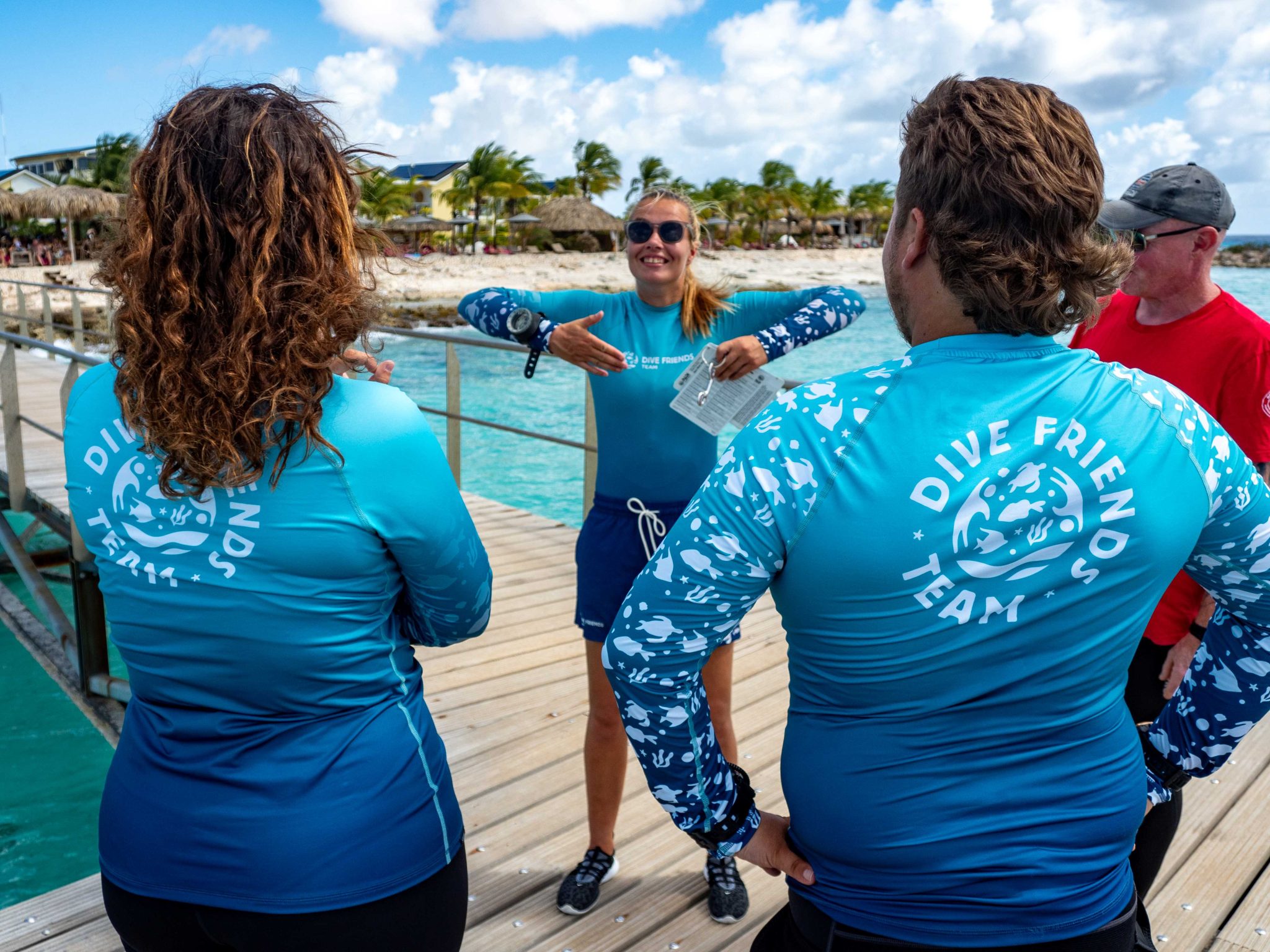
Dive Friends teaches the Instructor Development Course (IDC) several times a year to students who are eager to share their passion for diving with the world.
Dive Friends is known for the personal approach throughout the course. Their in-house course director will lead the students through every essential step, mentoring them to achieve their fullest potential as a dive instructor.
Applications for the following IDC start dates are now open:
- 12 April
- 5 July,
- 20 September
- 29 November
Partnership with Casita Palma
If the student opts for the IDC-Deluxe or IDC-Supreme package, their accommodation will be arranged for them at Casita Palma. This small and quiet resort is within walking distance from Dive Friends Bonaire’s main dive shop location and has everything you need to relax after an intense day of IDC training. Breakfast is included, so the student will always be fuelled and ready for their day.
Contact Dive Friends Bonaire’s Course Director Eddy for more information: coursedirector@divefriendsbonaire.com.
-

 News3 months ago
News3 months agoHone your underwater photography skills with Alphamarine Photography at Red Sea Diving Safari in March
-

 News2 months ago
News2 months agoCapturing Critters in Lembeh Underwater Photography Workshop 2024: Event Roundup
-

 Marine Life & Conservation Blogs2 months ago
Marine Life & Conservation Blogs2 months agoCreature Feature: Swell Sharks
-

 Blogs1 month ago
Blogs1 month agoMurex Resorts: Passport to Paradise!
-
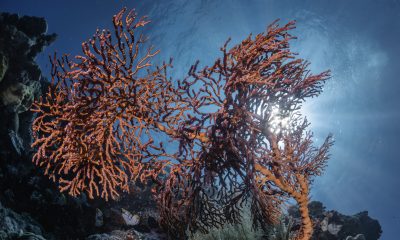
 News3 months ago
News3 months agoDive into Adventure with Photo Pro Paul Duxfield in North Sulawesi this October
-

 Gear News3 months ago
Gear News3 months agoBare X-Mission Drysuit: Ideal for Both Technical and Recreational Divers
-

 Gear Reviews2 months ago
Gear Reviews2 months agoGear Review: Oceanic+ Dive Housing for iPhone
-

 Blogs2 months ago
Blogs2 months agoDiver Discovering Whale Skeletons Beneath Ice Judged World’s Best Underwater Photograph



